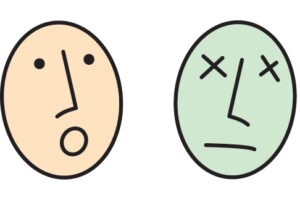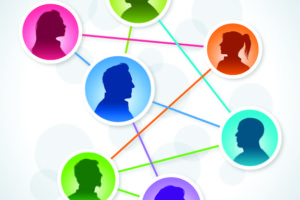American brain health is compromised
This truth is self-evident: when it comes to brain health, interdependence is better than independence.
At all ages, American brains are having a harder time doing their jobs: to help us survive and thrive. The U.S. struggles with one of the highest rates of Alzheimer’s in the world. Troubling rates of addiction, anxiety, depression, hypertension, loneliness, and suicide pose serious challenges to American public health as well. Americans have shorter, unhealthier lives compared to other western nations.
This sounds more like “unhappiness, impairment, and the loss of neurological function.” Our founding fathers must be turning in their graves!
On July 4th in 1776, the Continental Congress adopted the Declaration of Independence of the United States, recognizing the 13 original American colonies as independent, sovereign states working together (united states). This declaration states, “We hold these truths to be self-evident, that all men are created equal, that they are endowed by their Creator with certain unalienable Rights, that among these are Life, Liberty and the pursuit of Happiness.”
Since then, freedom and independence have become deeply ingrained in the American psyche. The American Dream of “life, liberty and the pursuit of happiness” has built the largest economy in the world, and continues to provide a beacon of hope to oppressed people all over the world.
However, over the past few decades, the American Dream has run into a speed bump.
Interdependence boosts brain health
Perhaps we are in the market for a new and improved version of the American Dream. What do our brains need from us to do their jobs better?
From a brain perspective, perhaps we have overplayed the importance of “freedom and independence.” These are wonderful values, but too much independence increases the risk of social isolation and loneliness—and impaired brain health.
The basis of brain health is trust and social connection. Meaningful interactions with other people enable neuroplasticity, a healthy brain’s magical ability to change and grow, and get better with age.
Alzheimer’s disease is associated with a loss of neuroplasticity, particularly in brain areas associated with language, interpersonal relationships, identity and memory.
Perhaps the American Dream 2.0 should be “life, liberty, and the pursuit of neuroplasticity.” Because neuroplasticity requires social engagement, we would have to focus on interdependence first and independence second. And we would have to embrace a more brain-friendly version of the first part of the sentence: all people are created equal and endowed with certain unalienable rights.
Let’s make American brains great again and they will get better with age. Happy Interdependence Day!




